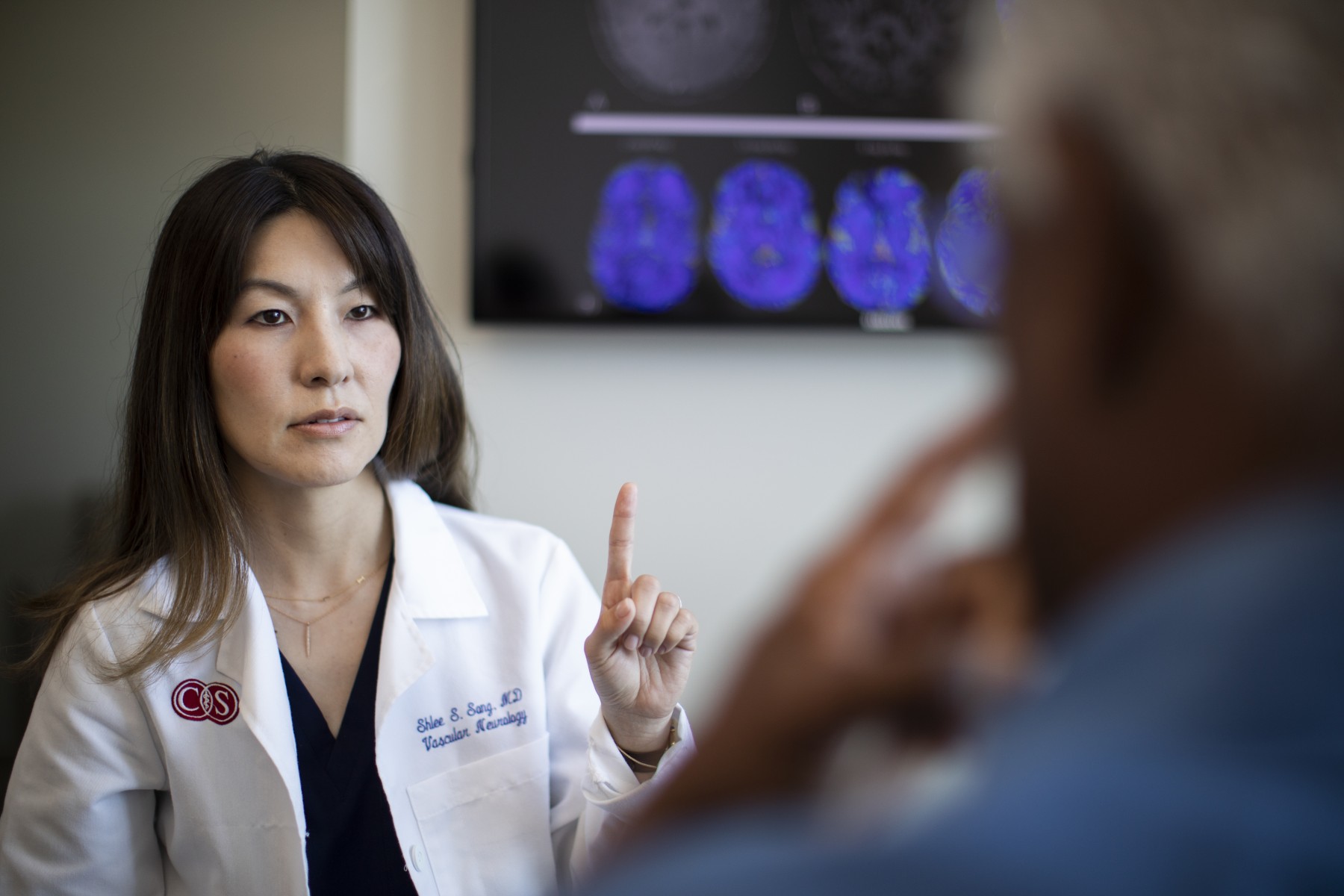Cedars-Sinai Expands Role of Leading Stroke Expert
Neurologist Shlee Song, MD, to Spearhead Effort to Enhance Neurology Expertise at Regional Hospitals
Shlee Song, MD, will assume a new role as Cedars-Sinai's Vice Chair in the Department of Neurology for System Integration, tapping her to spearhead the expansion of neurological care to affiliated regional hospitals and their communities.
"Dr. Song has been working since 2011 to enhance stroke care at Cedars-Sinai Medical Center, and since 2015-2016 with Torrance Memorial Medical Center and Cedars-Sinai Marina del Rey Hospital," said Nancy Sicotte, MD, professor and chair of Neurology at Cedars-Sinai, where she holds the Women's Guild Distinguished Chair in Neurology. "Cedars Sinai and Torrance Memorial are Comprehensive Stroke Centers and all three hospitals have received Gold Plus Quality Awards from the American Heart Association."
Sicotte said that the hospitals' multidisciplinary teams and stroke nurse champions Laurie Paletz, RN-C; Marco Pech, MSN, RN; and Maya Lewis, RN, share credit for these accomplishments, and that in Song’s new role, she will build on the teams’ previous achievements to bring the full scope of neurology services to patients throughout the region.
Working closely with Sicotte, Michele Tagliati, MD, vice chair of the Department of Neurology and professor of Neurology, and newly recruited outreach neurologists Rachel Carlin, MD, and Jeffrey Quinn, MD, Song will help expand neurology subspecialty expertise.The team will also continue its collaboration with Keith Black, MD, chair of the Department of Neurosurgery; Michael Alexander, MD, vice chair of Neurosurgery; Wouter Schievink, MD, director of the Microvascular Neurosurgery Program; Nestor Gonzalez, MD, director of the Neurovascular Laboratory; Paula Eboli, MD, medical director of Endovascular Neurosurgery at Torrance Memorial Medical Center; and neurosurgeon Lindsey Ross, MD. The goal is to continue to increase availability of emergency stroke care, and care for Parkinson's disease, movement disorders, Alzheimer's disease and dementia, for patients served by Torrance Memorial and Marina del Rey, and others in the community.
"If you need neurologic care, especially in an emergency, I think access to that care needs to be available in each region," said Song. "It shouldn't matter whether you are on the west side or the east side of L.A., in the South Bay or the Valley. We’re improving access within the health system."
Bringing procedures and processes developed at the main medical campus to regional hospitals will also give more patients the chance to participate in clinical trials. Some collaborative trials are already underway.
"For example, the magnetic resonance imaging physicist who helped set up our whole brain vessel wall imaging (VWI) protocol at Cedars-Sinai Medical Center was able to set up the same imaging protocol at Torrance Memorial Medical Center, so we can enroll subjects there," said Song. "Now patients from Torrance Memorial can contribute their results and records to help us understand the disease process, and we can tailor their therapies, working with regional physicians."




